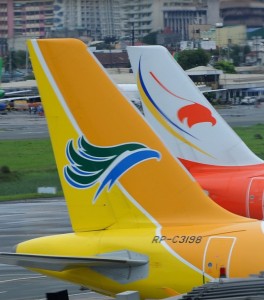MANILA, Philippines—The Civil Aviation Authority of the Philippines (CAAP) on Friday issued the first batch of cabin crew licenses in a bid to improve the delivery of services to airline passengers.
Twenty-two cabin crew members of Cebu Pacific Air received the first government-issued licenses the CAAP began requiring of all cabin crew in June.
The Cebu Pacific crew members were Katherine Salvanera, Lovelly Bonifacio, Grecco Martinez, Rowena Taloboc, Aielie Malazarte, Princess Lady Guevarra, Ann Kaira Fajardo, Hyacinth Lim, Rachael Dianne Calalo, Shiela Marie Manluco, Nicole Lucien Canson, Rowena Joy Dimatulac, Jrysiel Marie Marquez, Cris Hannah Madula, Francis Adrian Sumulong, Mercy Malaluan, Antonio Villanueva, Erika Pangan, Canceran Mitzail, Ayessa Karia Eleda, Dayne Maree Clanor and Rheyciel Manalo.
Refresher courses
CAAP Director General William Hotchkiss III, Deputy Director General John Andrews and Assistant Director General Beda Badiola of the CAAP flight standard and inspectorate service attended the license awarding rite at the agency’s main office in Pasay City.
It will be recalled that the CAAP issued on June 17 Memorandum Circular No. 30-13, which provides that all airline operators require their crew to obtain licenses from the agency to conform to Philippine Civil Aviation Regulations (PCAR).
The memo covered all crew members who had completed their annual recurrent courses from January to June 2013. The Cebu Pacific crew, who had already undergone training, only took refresher courses and demonstrated their proficiencies before the inspectors prior to the issuance of their licenses.
New policy
The new CAAP policy followed the controversial runway accident involving a Cebu Pacific plane at the Davao International Airport where passengers complained about the unpreparedness of the cabin crew to help them.
In response, the CAAP amended the PCAR and ordered all air carriers to subject their cabin crew to government-supervised licensing and training procedures.
They were also required to complete an approved training course and take a “knowledge test” to ensure they were competent in operations and emergency procedures.
The license is valid for three years or as long as the holder maintains the required competencies and is medically fit.—Jerome Aning
